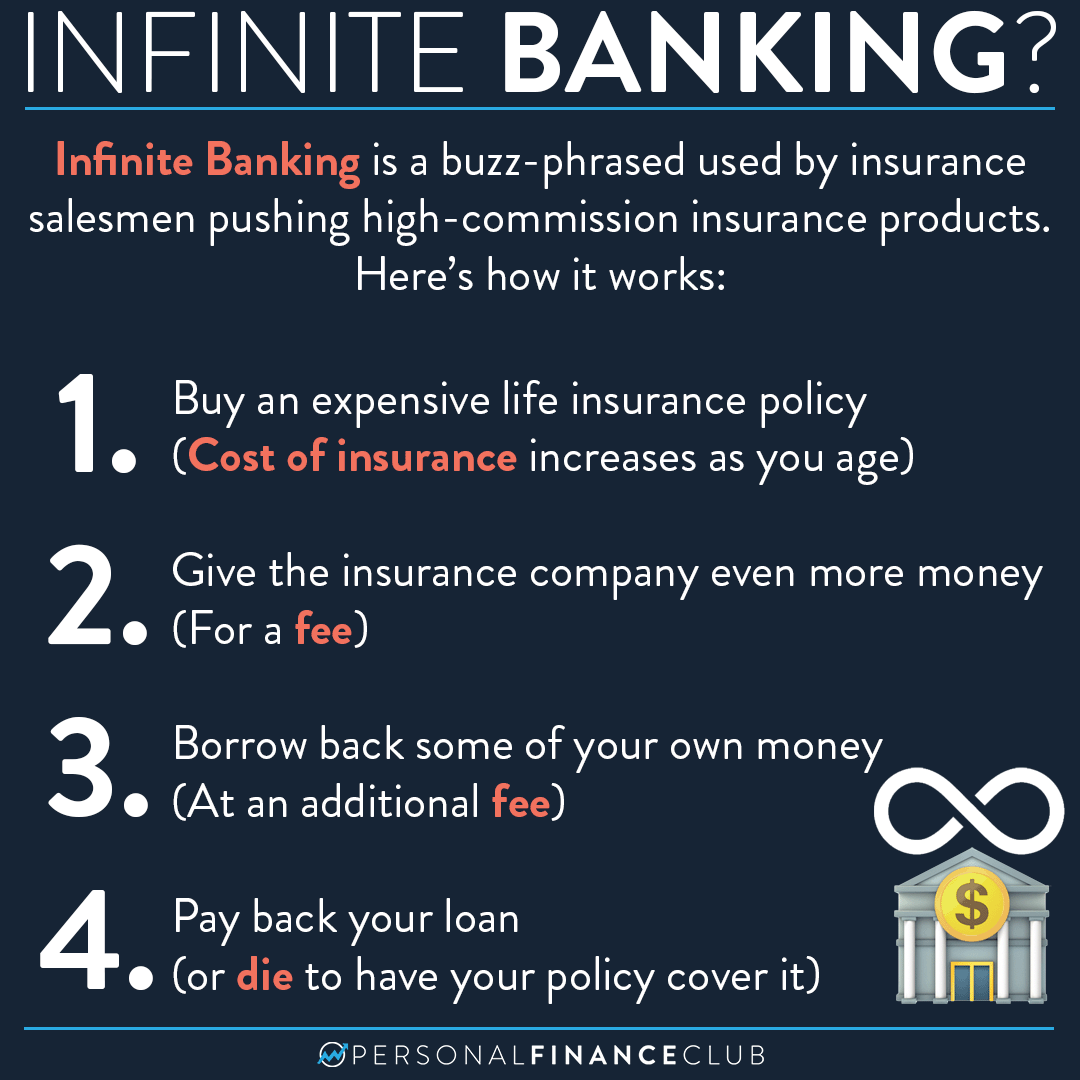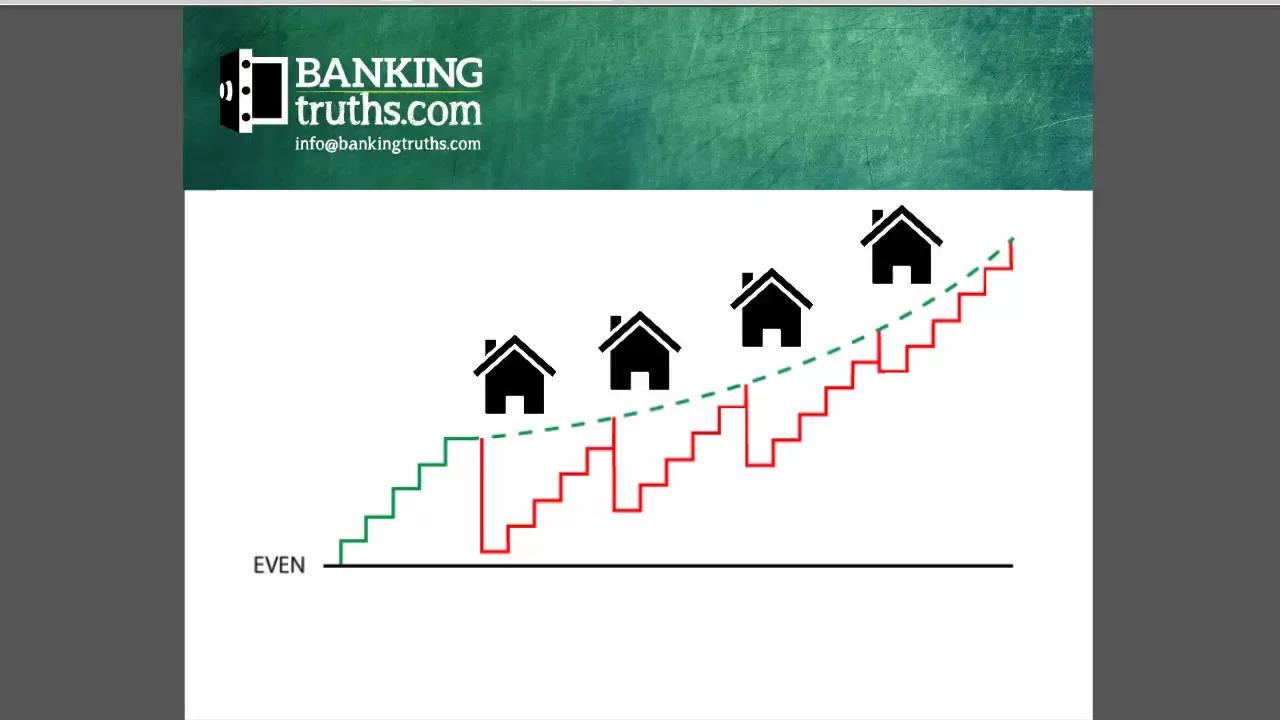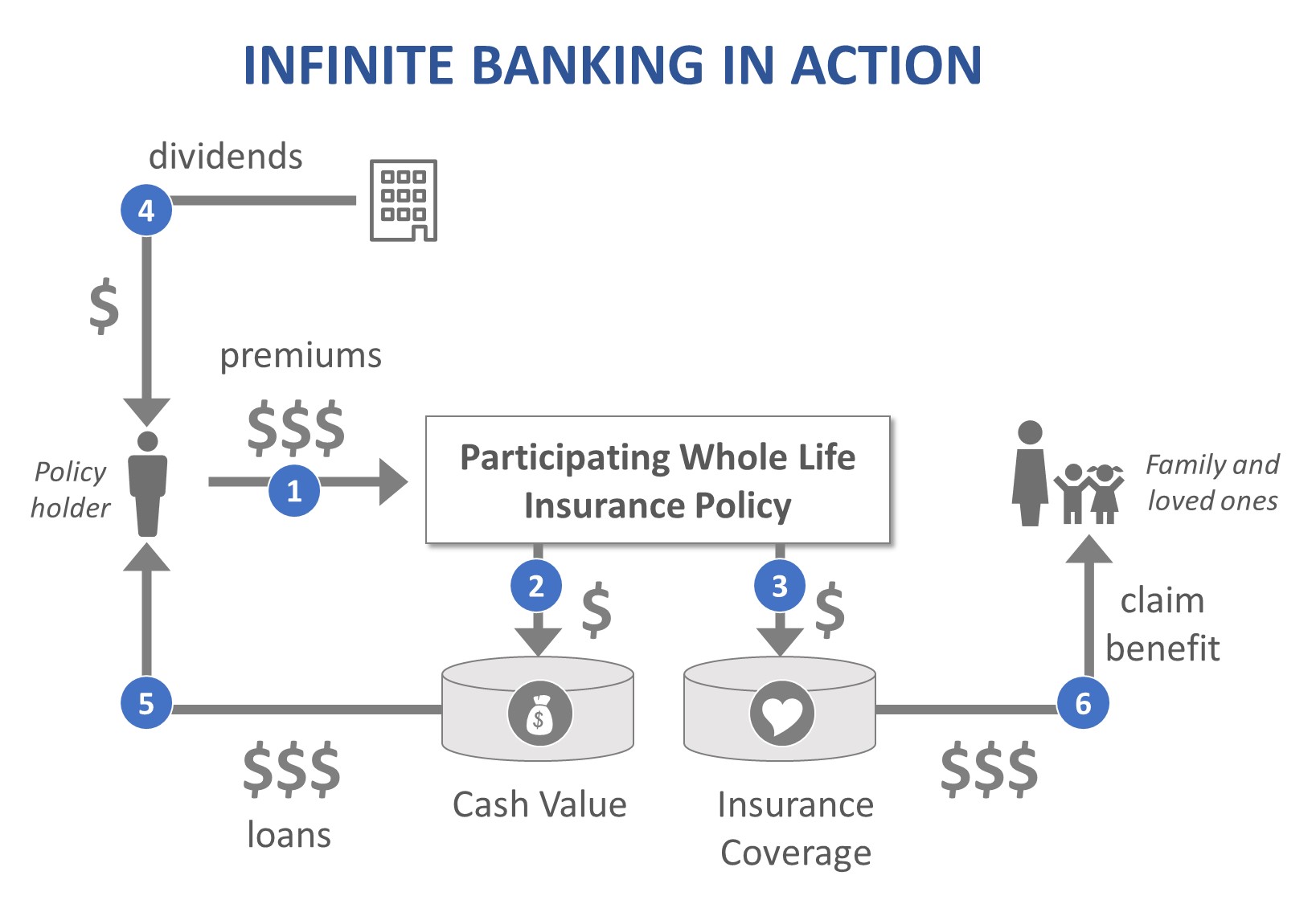All Categories
Featured
Table of Contents
The disadvantages of boundless banking are frequently ignored or otherwise pointed out in all (much of the details available concerning this principle is from insurance coverage representatives, which may be a little prejudiced). Only the money worth is growing at the returns rate. You also need to pay for the cost of insurance policy, fees, and expenditures.

Every long-term life insurance coverage plan is various, however it's clear a person's total return on every dollar spent on an insurance coverage product could not be anywhere close to the returns price for the policy.
Infinite Banking Life Insurance
To give a very basic and hypothetical example, let's think a person is able to earn 3%, on standard, for every buck they invest on an "infinite financial" insurance product (after all expenses and fees). This is double the approximated return of whole life insurance coverage from Customer News of 1.5%. If we presume those dollars would undergo 50% in taxes complete otherwise in the insurance policy product, the tax-adjusted rate of return can be 4.5%.

We assume greater than average returns on the entire life item and a really high tax price on bucks not put right into the plan (which makes the insurance item look better). The truth for many folks may be worse. This pales in contrast to the long-term return of the S&P 500 of over 10%.
Unlimited banking is a great item for representatives that market insurance coverage, however might not be ideal when contrasted to the cheaper choices (with no sales people earning fat payments). Here's a failure of a few of the various other supposed benefits of unlimited banking and why they may not be all they're broken up to be.
Infinite Bank
At the end of the day you are getting an insurance coverage product. We enjoy the defense that insurance policy offers, which can be acquired much less expensively from an affordable term life insurance policy policy. Overdue lendings from the plan may also decrease your death benefit, decreasing one more level of security in the policy.
The principle just works when you not just pay the substantial premiums, yet utilize extra cash money to acquire paid-up enhancements. The chance price of all of those bucks is tremendous exceptionally so when you could rather be buying a Roth IRA, HSA, or 401(k). Also when contrasted to a taxed financial investment account or even an interest-bearing account, limitless banking may not offer similar returns (compared to spending) and similar liquidity, access, and low/no cost structure (compared to a high-yield interest-bearing accounts).
With the increase of TikTok as an information-sharing platform, financial advice and techniques have located a novel means of spreading. One such technique that has been making the rounds is the infinite banking principle, or IBC for brief, amassing endorsements from celebs like rap artist Waka Flocka Fire. While the technique is currently preferred, its roots map back to the 1980s when financial expert Nelson Nash presented it to the globe.

Within these policies, the cash value grows based on a price established by the insurance provider. Once a considerable cash money worth collects, insurance policy holders can obtain a cash money value funding. These financings vary from standard ones, with life insurance offering as security, meaning one might lose their insurance coverage if borrowing excessively without sufficient cash money worth to support the insurance policy expenses.
Royal Bank Visa Infinite Avion
And while the appeal of these plans is evident, there are innate limitations and risks, requiring persistent cash money worth monitoring. The method's legitimacy isn't black and white. For high-net-worth individuals or entrepreneur, especially those utilizing approaches like company-owned life insurance policy (COLI), the advantages of tax obligation breaks and substance development might be appealing.
The attraction of unlimited banking doesn't negate its challenges: Expense: The fundamental demand, a permanent life insurance policy, is costlier than its term equivalents. Eligibility: Not everybody gets approved for whole life insurance policy due to extensive underwriting procedures that can leave out those with certain wellness or lifestyle problems. Intricacy and threat: The complex nature of IBC, combined with its dangers, may prevent many, specifically when easier and much less dangerous choices are available.

Designating around 10% of your month-to-month income to the policy is just not viable for many people. Component of what you review below is merely a reiteration of what has actually already been stated above.
So prior to you obtain on your own right into a situation you're not gotten ready for, recognize the following initially: Although the idea is commonly sold therefore, you're not actually taking a loan from on your own - infinite credit loan. If that were the situation, you wouldn't need to settle it. Instead, you're obtaining from the insurer and need to settle it with rate of interest
R Nelson Nash Net Worth
Some social media articles suggest using cash value from whole life insurance policy to pay down credit report card financial obligation. When you pay back the car loan, a part of that interest goes to the insurance policy business.
For the initial a number of years, you'll be paying off the compensation. This makes it incredibly difficult for your policy to accumulate value during this time. Unless you can pay for to pay a few to numerous hundred dollars for the next decade or more, IBC will not work for you.
If you call for life insurance coverage, right here are some beneficial pointers to take into consideration: Take into consideration term life insurance. Make sure to shop about for the best rate.

Boundless banking is not a product or solution provided by a details establishment. Boundless financial is a method in which you acquire a life insurance policy policy that builds up interest-earning cash value and get car loans against it, "obtaining from yourself" as a source of capital. After that at some point pay back the funding and begin the cycle around again.
Pay plan premiums, a part of which builds money worth. Take a funding out against the policy's cash money value, tax-free. If you use this principle as planned, you're taking cash out of your life insurance coverage plan to buy every little thing you would certainly require for the remainder of your life.
Table of Contents
Latest Posts
Bank On Yourself Strategy
The Infinite Banking Concept
Infinite Banking Solution
More
Latest Posts
Bank On Yourself Strategy
The Infinite Banking Concept
Infinite Banking Solution